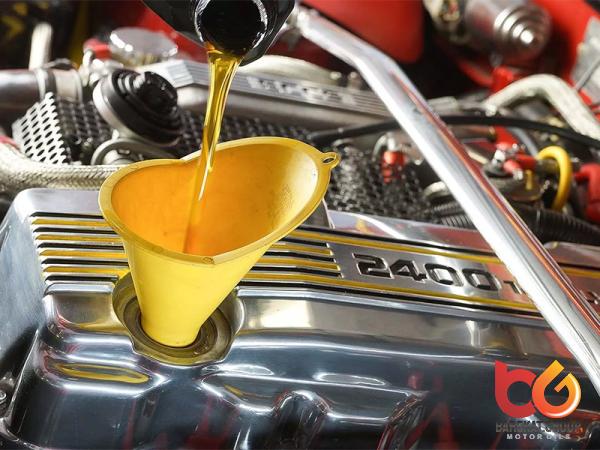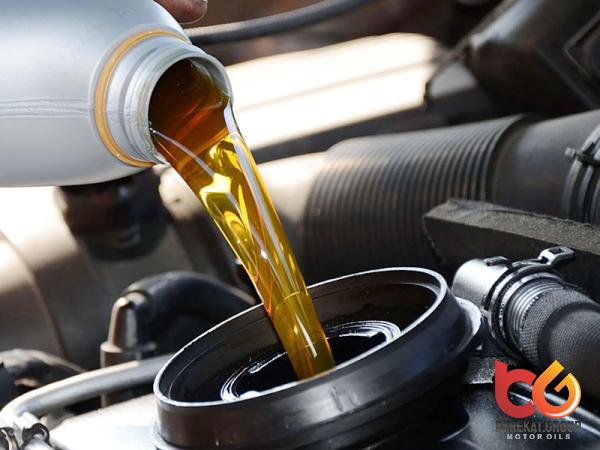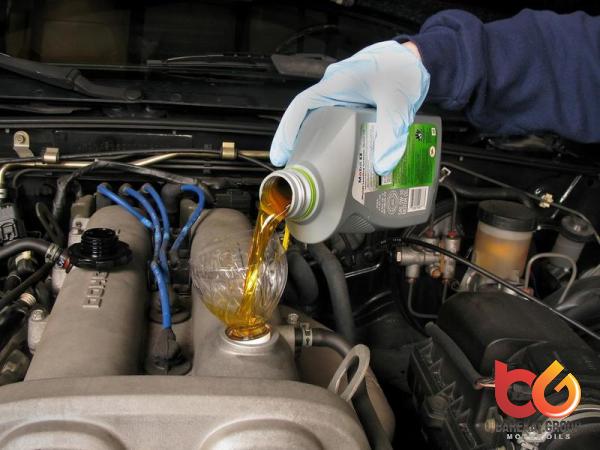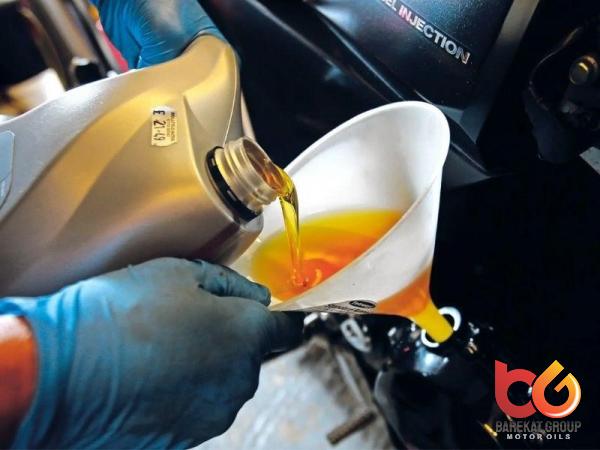Title: Analyzing the Purchase Price and Quality Test of Engine Oil 6L Introduction: Engine oil is a crucial factor in maintaining the performance and longevity of a vehicle’s engine. To ensure optimal functioning, it is important to consider both the purchase price and the quality of engine oil. This article aims to explore the factors associated with purchasing engine oil in 6L quantities, including prices from different brands and conducting a quality test. 1. Importance of Engine Oil: Engine oil plays a vital role in lubricating engine components, minimizing friction, preserving engine life, and enhancing fuel efficiency. Using high-quality oil that meets manufacturer specifications is essential for optimal engine functioning.
Engine oil
 2. Considerations for Choosing Engine Oil: When buying engine oil, several factors should be considered: a. Viscosity: Different engines require specific viscosity grades, such as 5W-30, 10W-40, or 20W-50, depending on operating conditions and climate. b. API Certification: The American Petroleum Institute (API) assigns performance standards to oil based on various tests, ensuring that it meets industry requirements. c. OEM Specifications: Original Equipment Manufacturer (OEM) specifications are crucial, as they indicate the oil’s compatibility with specific engine types and enhance warranty compliance. d. Synthetic vs. Conventional Oil: Synthetic oils offer improved performance and protection compared to conventional mineral oils, but they also come at a higher cost.
2. Considerations for Choosing Engine Oil: When buying engine oil, several factors should be considered: a. Viscosity: Different engines require specific viscosity grades, such as 5W-30, 10W-40, or 20W-50, depending on operating conditions and climate. b. API Certification: The American Petroleum Institute (API) assigns performance standards to oil based on various tests, ensuring that it meets industry requirements. c. OEM Specifications: Original Equipment Manufacturer (OEM) specifications are crucial, as they indicate the oil’s compatibility with specific engine types and enhance warranty compliance. d. Synthetic vs. Conventional Oil: Synthetic oils offer improved performance and protection compared to conventional mineral oils, but they also come at a higher cost.
Specifications of Engine oil
 3. Purchase Price Comparison: To assess the purchase price of engine oil in 6L quantities, it is essential to consider various brands and vendors. Here are some key considerations: a. Brand Reputation: Established brands often have a higher purchase price due to their reputation for quality and reliability. b. Off-brands and Private Labels: Lesser-known brands or private labels may offer lower prices but could be associated with quality concerns. c. Discounts and Bulk Purchasing: Some vendors offer discounts or incentives for purchasing engine oil in larger quantities, making it important to consider long-term benefits.
3. Purchase Price Comparison: To assess the purchase price of engine oil in 6L quantities, it is essential to consider various brands and vendors. Here are some key considerations: a. Brand Reputation: Established brands often have a higher purchase price due to their reputation for quality and reliability. b. Off-brands and Private Labels: Lesser-known brands or private labels may offer lower prices but could be associated with quality concerns. c. Discounts and Bulk Purchasing: Some vendors offer discounts or incentives for purchasing engine oil in larger quantities, making it important to consider long-term benefits.
Buy Engine oil
 d. Comparative Analysis: Conducting a thorough comparison of different brands, taking into account their reputation, quality, and price, can help make an informed purchasing decision. 4. Importance of Quality Testing: Quality testing allows consumers to evaluate the performance and reliability of engine oil. Here are some common quality tests: a. Viscosity Test: Measuring the oil’s ability to flow at different temperatures to ensure it matches the specified viscosity grades. b. Flash Point Test: Determines the temperature at which vapors from the oil can ignite, indicating its resistance to heat and fire hazards. c. Pour Point Test: Measures the lowest temperature at which the oil can flow, ensuring its ability to maintain lubrication even in colder climates. d. TBN (Total Base Number) Test: Assesses the oil’s ability to neutralize acidic byproducts that form during combustion. e. Oxidation Stability Test: Determines the oil’s resistance to oxidation, preventing the formation of sludge, varnish, and other deposits. 5. Appropriate Quality Limits: Engine oil quality testing should be performed based on predefined standards to ensure reliability. These standards can be set by regulatory bodies, such as the API, or by individual OEMs. a. API Standards: APIs assign different classifications, such as API SN, SM, SJ, etc., based on the oil’s performance in meeting certain quality criteria. b. OEM Specifications: Vehicle manufacturers often have their own quality standards that go beyond API requirements.
d. Comparative Analysis: Conducting a thorough comparison of different brands, taking into account their reputation, quality, and price, can help make an informed purchasing decision. 4. Importance of Quality Testing: Quality testing allows consumers to evaluate the performance and reliability of engine oil. Here are some common quality tests: a. Viscosity Test: Measuring the oil’s ability to flow at different temperatures to ensure it matches the specified viscosity grades. b. Flash Point Test: Determines the temperature at which vapors from the oil can ignite, indicating its resistance to heat and fire hazards. c. Pour Point Test: Measures the lowest temperature at which the oil can flow, ensuring its ability to maintain lubrication even in colder climates. d. TBN (Total Base Number) Test: Assesses the oil’s ability to neutralize acidic byproducts that form during combustion. e. Oxidation Stability Test: Determines the oil’s resistance to oxidation, preventing the formation of sludge, varnish, and other deposits. 5. Appropriate Quality Limits: Engine oil quality testing should be performed based on predefined standards to ensure reliability. These standards can be set by regulatory bodies, such as the API, or by individual OEMs. a. API Standards: APIs assign different classifications, such as API SN, SM, SJ, etc., based on the oil’s performance in meeting certain quality criteria. b. OEM Specifications: Vehicle manufacturers often have their own quality standards that go beyond API requirements.
Engine oil + buy and sell
 Complying with OEM specifications helps protect the warranty and maintain engine performance. 6. Conclusion: Choosing the appropriate engine oil for your vehicle is a critical decision to ensure engine health and performance. Evaluating the purchase price, brand reputation, and quality testing are essential steps in the decision-making process. Understanding the specifications, performing quality tests, and adhering to recommended standards, such as API and OEM specifications, will help ensure the engine oil meets the required standards and provides the necessary protection for your vehicle’s engine.
Complying with OEM specifications helps protect the warranty and maintain engine performance. 6. Conclusion: Choosing the appropriate engine oil for your vehicle is a critical decision to ensure engine health and performance. Evaluating the purchase price, brand reputation, and quality testing are essential steps in the decision-making process. Understanding the specifications, performing quality tests, and adhering to recommended standards, such as API and OEM specifications, will help ensure the engine oil meets the required standards and provides the necessary protection for your vehicle’s engine.
Your comment submitted.